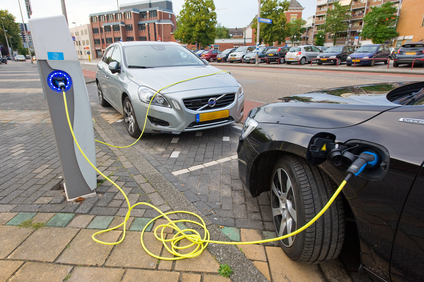Positive charge: EU facilities to load cars rise by almost half
Lauren Comiteau
According to ChargeUp, the European association of charging station providers, some 44% more public charging points were added throughout the EU last year, meaning “charge point stress” should go the way of the petrol car this summer.
“It’s going really fast,” Sjors ten Tije of the Association of Electric Drivers told NOS. “To be honest, it sometimes surprises me. Especially in France, you see the charging stations shooting up from the ground, where one charging plaza appears with 20 or 25 places after the other. This needed to happen, because there were very few and they were also often broken.”
Even better news for Dutch electric car drivers: most of those new charging points were added in countries favoured by Dutch holiday makers, including France, Germany, Spain and Belgium.
Last summer, many electric vehicle drivers apparently borrowed rented petrol cars for their vacations so they wouldn’t be stranded along foreign highways with an empty battery. More charging stations, say experts, also mean less stress.
“In Germany, almost every fossil fuel filling station now also has a fast charger,” said ten Tije. “You can drive around there with a plug-in car almost on spec.” In addition, non-Tesla drivers can use the Tesla Supercharger network, which has dense coverage throughout much of the EU.
Every 60 kilometers
EU legislation aims to have charging points at least every 60 kilometers along highways, with a uniform way to pay, by 2026.
Until then, the ANWB advises travellers to plan ahead and map out charging points along their routes. Some experts advise having a variety of charging cards.
According to the CBS Dutch statistics office, the number of electric vehicles in the Netherlands has almost tripled in the last four years, from almost 43,000 in 2019 to almost 128,000 this year.
Thank you for donating to DutchNews.nl.
We could not provide the Dutch News service, and keep it free of charge, without the generous support of our readers. Your donations allow us to report on issues you tell us matter, and provide you with a summary of the most important Dutch news each day.
Make a donation